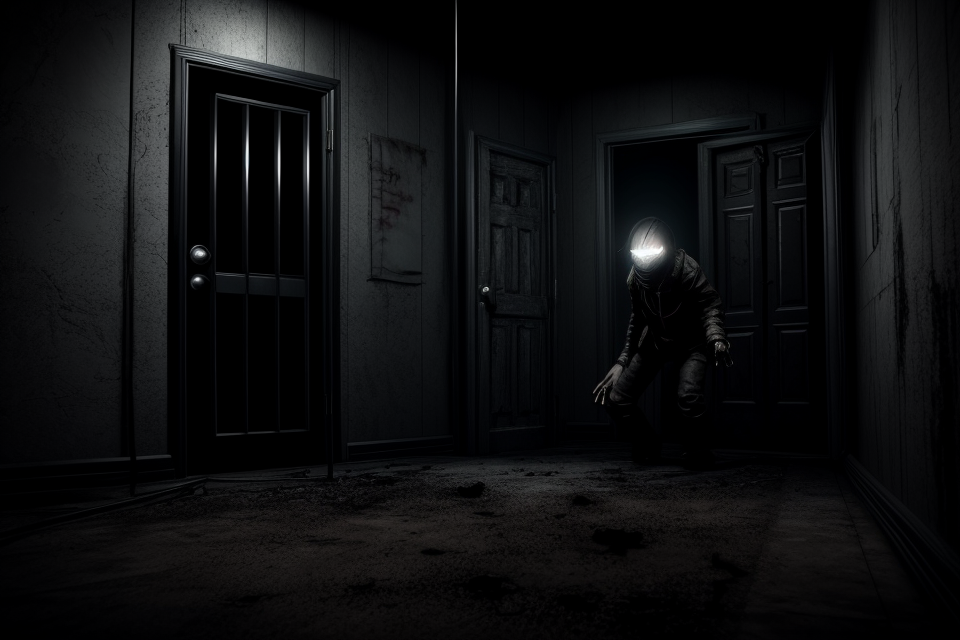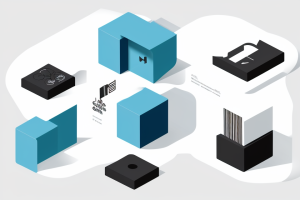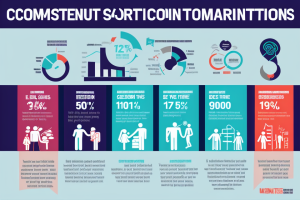
Do you often experience a racing heartbeat while playing scary games? You’re not alone! Many people report feeling their heartbeat quicken as they immerse themselves in a terrifying video game. But why does this happen? Is it just a coincidence or is there a scientific explanation behind it? In this article, we’ll explore the fascinating world of the human body and the role it plays in our gaming experiences. So, grab a bag of popcorn, sit back, and get ready to discover why your heartbeat speeds up when you play scary games.
Your heart beats fast when playing scary games because your body is experiencing a physiological response to the fear and stress triggered by the game. This response is designed to help your body prepare for action, known as the “fight or flight” response. When you feel threatened, your body releases adrenaline, which causes your heart rate to increase, your blood vessels to constrict, and your breathing to become quicker and more shallow. This is an automatic response that is intended to help you respond to the perceived threat more effectively. However, if you are playing a scary game and your heart is beating fast, it is important to remember that it is just a game and that you are safe. Take deep breaths and try to relax to help calm your body and mind.
What is the Connection Between Scary Games and Heart Rate?
Adrenaline Response
When you play scary games, your body experiences a physiological response that is similar to the fight-or-flight response. This response is triggered by the release of adrenaline, also known as epinephrine, which is a hormone produced by the adrenal glands.
Adrenaline is released in response to stress or danger, and it prepares the body for action by increasing heart rate, blood pressure, and blood sugar levels. This is often referred to as the “fight-or-flight” response, and it is an automatic response that is intended to help the body deal with stressful or dangerous situations.
When you play scary games, your brain perceives the game as a stressful situation, and it triggers the release of adrenaline. This can cause your heart rate to increase, which can make you feel like your heart is beating fast or racing. This physiological response is a normal part of the body’s response to stress, and it is not necessarily a cause for concern.
However, if you are experiencing rapid or irregular heartbeats, chest pain, shortness of breath, or other symptoms, it is important to seek medical attention. These symptoms could be a sign of a more serious condition, such as an arrhythmia or cardiac disease.
It is worth noting that the adrenaline response is not limited to scary games. Any situation that is perceived as stressful or dangerous can trigger the release of adrenaline, including physical exercise, public speaking, or even the anticipation of a deadline. However, the intensity and duration of the adrenaline response can vary depending on the individual and the situation.
Heart Rate Variability
Heart rate variability (HRV) refers to the changes in the time interval between consecutive heartbeats. HRV is a measure of the autonomic nervous system’s ability to adapt to various stimuli, including emotional and physical stress. In response to a scary game, the body’s fight or flight response is triggered, causing the heart rate to increase, and the HRV to decrease.
- HRV and Stress:
- The autonomic nervous system (ANS) is responsible for regulating the body’s response to stress.
- When under stress, the ANS activates the sympathetic nervous system (SNS), which prepares the body for the fight or flight response.
- The SNS increases heart rate, and the heart pumps more blood to the muscles, which prepares the body for physical exertion.
- This physical response is also accompanied by psychological responses, such as increased alertness and focus.
- HRV and Heart Health:
- HRV is a marker of heart health and has been associated with various health conditions, including cardiovascular disease, heart failure, and sudden cardiac death.
- A low HRV is indicative of reduced heart rate variability, which suggests that the heart is less able to adapt to changes in physical and emotional stress.
- Low HRV has been linked to an increased risk of cardiovascular disease and heart failure, as well as decreased athletic performance and reduced resilience to stress.
- Measuring HRV:
- HRV can be measured using various techniques, including electrocardiography (ECG), which measures the electrical activity of the heart, and photoplethysmography (PPG), which measures changes in blood volume in the skin.
- Wearable devices, such as smartwatches and fitness trackers, often include HRV monitoring features, which can provide real-time feedback on the body’s response to stress.
- Monitoring HRV can be useful for athletes, fitness enthusiasts, and individuals seeking to improve their resilience to stress and enhance their overall health and well-being.
The Science Behind Heart Racing in Scary Games
Fear and the Brain
Fear is a complex emotional response that is regulated by various brain regions. When we encounter something scary, our brain goes through a series of reactions that ultimately lead to the release of stress hormones such as adrenaline.
The amygdala, a small almond-shaped structure in the brain, plays a crucial role in processing fear. It receives sensory information from the environment and sends signals to other parts of the brain to initiate the fear response.
The prefrontal cortex, a region at the front of the brain, is responsible for regulating emotions and decision-making. It can inhibit the amygdala’s response to reduce fear, but it can also be bypassed in scary situations, leading to a heightened fear response.
In addition to the amygdala and prefrontal cortex, other brain regions such as the hippocampus and insula are also involved in the fear response. The hippocampus is responsible for storing and retrieving memories of past fearful events, while the insula is involved in bodily sensations such as heart rate and sweating.
When we play scary games, our brain perceives the simulated danger and triggers the fear response, leading to increased heart rate and other physiological changes. This response is similar to what happens in real-life scary situations, which is why our heart may race when we watch a scary movie or play a scary game.
Physiological Responses to Fear
When a person experiences fear, their body undergoes a series of physiological responses that can cause their heart to race. These responses are triggered by the release of hormones such as adrenaline and cortisol, which prepare the body for a fight-or-flight response.
Adrenaline Release
Adrenaline, also known as epinephrine, is a hormone that is released by the adrenal glands in response to stress or fear. When adrenaline is released, it causes the heart to beat faster and harder, which can lead to an increased heart rate. This increase in heart rate is intended to supply the body with more oxygen and nutrients, preparing it for physical exertion.
Cortisol Release
Cortisol is another hormone that is released in response to stress or fear. It is produced by the adrenal glands and is often referred to as the “stress hormone.” Cortisol helps to regulate the body’s response to stress by increasing blood sugar levels and suppressing non-essential bodily functions. This allows the body to focus its energy on dealing with the perceived threat.
Heart Rate Variability
In addition to causing an increase in heart rate, fear can also affect the variability of heartbeats. Heart rate variability refers to the slight fluctuations in heart rate that occur between each beat. These fluctuations are influenced by a number of factors, including the autonomic nervous system and the parasympathetic nervous system.
When a person experiences fear, their heart rate variability may decrease, which can lead to a more erratic heartbeat. This can be unsettling and may contribute to the feeling of anxiety or panic that can accompany fear.
Overall, the physiological responses to fear that are triggered by the release of hormones such as adrenaline and cortisol can cause a person’s heart to race, leading to an increased heart rate and potentially erratic heartbeats. These responses are intended to prepare the body for physical exertion and are a normal part of the body’s stress response.
Common Reactions to Scary Games
Heart Palpitations
Heart palpitations refer to the feeling of one’s heart beating rapidly or irregularly. This is a common reaction that individuals experience when playing scary games. The adrenaline rush caused by the fear response can lead to an increase in heart rate, which can cause palpitations.
However, it is important to note that not everyone experiences heart palpitations while playing scary games. It is also possible for individuals to experience palpitations due to other factors, such as anxiety or caffeine intake. Therefore, it is essential to consider individual differences and other potential factors when examining the relationship between scary games and heart palpitations.
In some cases, heart palpitations caused by playing scary games may not be a cause for concern. However, if they persist or are accompanied by other symptoms such as chest pain or shortness of breath, it is advisable to seek medical attention. It is important to understand that the experience of heart palpitations while playing scary games is not necessarily a sign of a serious medical condition.
Sweating
When playing scary games, it is common for people to experience physical reactions such as sweating. This reaction is often caused by the body’s fight or flight response, which is triggered when we feel threatened or scared. When we perceive a threat, our body releases adrenaline, which increases our heart rate and causes us to sweat.
Sweating is a natural way for the body to regulate its temperature, and it is an important part of the body’s response to stress. However, excessive sweating can be uncomfortable and can lead to dehydration if not properly managed. It is important to stay hydrated while playing scary games to prevent dehydration and to help regulate body temperature.
In addition to sweating, other physical reactions to scary games may include rapid breathing, increased heart rate, and muscle tension. These reactions are normal and are a result of the body’s natural response to perceived threats. However, if these reactions persist after the game is over, it may be a sign of anxiety or other mental health concerns and it is important to seek professional help.
Shaking
When you play scary games, it’s common to experience physical reactions, such as shaking. This shaking can manifest in different parts of your body, including your hands, feet, or even your entire body. Here are some possible reasons why you might shake while playing scary games:
- Adrenaline Rush: When you’re playing a scary game, your body releases adrenaline in response to the perceived threat. This rush of adrenaline can cause your heart rate to increase, which in turn can make you feel shaky or trembly.
- Fear Response: Fear is a natural human response to perceived threats, and it can cause a variety of physical reactions, including shaking. When you’re playing a scary game, your brain may interpret the on-screen events as a real-life threat, triggering a fear response that leads to shaking.
- Anxiety: Anxiety is a common emotion experienced by many people when they’re playing scary games. It’s normal to feel anxious when you’re in a situation that makes you feel uncomfortable or uncertain, and this anxiety can manifest as physical symptoms like shaking.
- Agitation: Agitation is another common physical reaction to anxiety or fear. When you’re feeling agitated, you may feel restless, jittery, or shaky, and this can be especially pronounced when you’re playing a scary game that’s causing you to feel on edge.
Overall, shaking is a common physical reaction to playing scary games, and it’s usually nothing to worry about. However, if you’re experiencing shaking that’s severe or persistent, it’s always a good idea to talk to a doctor or mental health professional for further evaluation and support.
Factors That Influence Heart Rate During Scary Games
Personal Susceptibility
- Individual Differences in Heart Rate Response
- Heart rate variability: The ability of the heart to adjust its beat-to-beat interval in response to changing demands, influenced by factors such as stress, anxiety, and age.
- Inherent factors: Genetic predisposition, baseline heart rate, and cardiovascular health play a role in determining an individual’s heart rate response to scary games.
- Emotional and Psychological Factors
- Fear and anxiety: The anticipation and experience of fear in scary games can trigger the body’s stress response, leading to increased heart rate.
- Personality traits: Individuals with higher levels of neuroticism or those who are more easily startled may be more susceptible to heart rate changes during scary games.
- Attention and focus: The intensity of one’s engagement in the game, coupled with their capacity to concentrate on the stimuli, can influence the magnitude of heart rate changes.
- Cognitive and Sensory Factors
- Expectancy and anticipation: The individual’s expectations and predictions about the game’s content can shape their physiological responses, including heart rate.
- Sensory stimuli: Visual and auditory elements in scary games, such as sudden sounds or eerie visuals, can elicit physiological reactions, including increased heart rate.
- Familiarity and desensitization: Repeated exposure to scary games can lead to habituation, where the individual’s physiological responses may decrease over time, although this may vary across individuals.
Game Design
- The role of game design in eliciting fear and excitement
- The impact of game mechanics on heart rate
- The influence of game storytelling on emotional response
Game design plays a crucial role in eliciting fear and excitement in players. The mechanics of the game, such as the pace, sound effects, and visuals, can all contribute to a heightened emotional response. For example, a game with sudden loud noises or fast-paced action may cause a player’s heart rate to increase.
Additionally, the storytelling elements of a game can also influence a player’s emotional response. For instance, a game with a suspenseful plot or unexpected jump scares may cause a player’s heart rate to increase. The game’s narrative and character development can also affect a player’s emotional investment in the game, leading to a more intense emotional response.
Furthermore, the game’s difficulty level can also impact a player’s heart rate. A challenging game that requires skill and strategy can create a sense of tension and pressure, leading to a heightened emotional response. The game’s level design, such as the placement of enemies or obstacles, can also contribute to a player’s emotional experience.
Overall, game design plays a significant role in the emotional response of players when playing scary games. The combination of mechanics, storytelling, and difficulty level can all contribute to a heightened emotional state, including an increased heart rate.
Individual Differences
Various factors contribute to the individual differences in heart rate response during scary games. Some of these factors include:
- Personality Traits: Certain personality traits, such as neuroticism and anxiety, may make individuals more susceptible to experiencing heightened heart rate while playing scary games.
- Previous Experiences: A person’s past experiences, including exposure to real-life or fictional fear-inducing situations, can influence their heart rate response during scary games.
- Physiological Reactivity: Individual differences in the body’s physiological reactivity to stress can affect how the body responds to the perceived threat in scary games, leading to variations in heart rate.
- Sensation Seeking: People with higher levels of sensation seeking tend to enjoy the thrill and excitement that scary games provide, which may result in a heightened heart rate response.
- Cognitive Appraisal: The way an individual perceives and interprets the events in a scary game can influence their heart rate response. For example, someone who perceives a game as less threatening may experience a lower heart rate than someone who finds the game more frightening.
- Cardiovascular Fitness: People with higher cardiovascular fitness may have a more efficient heart rate response to physical activity, including the physical reactions experienced during scary games.
- Gender: Research suggests that gender may play a role in heart rate response during scary games, with some studies finding that males may experience a greater increase in heart rate compared to females.
- Age: Age can also influence heart rate response during scary games. Younger individuals may experience a more pronounced heart rate increase due to their greater arousal and reactivity to new and stimulating experiences.
These individual differences in heart rate response during scary games can help explain why some people experience a faster heart rate while others do not. It is important to note that these factors may interact with one another, and their combined influence can result in different heart rate responses in different individuals.
When to Worry About Heart Rate During Scary Games
Normal Reactions vs. Abnormal Reactions
It is common for people to experience an increase in heart rate while playing scary games. This heightened response is often a normal reaction to the intense and suspenseful content of the game. However, there are instances where an individual’s heart rate reaction may be indicative of an underlying issue. Understanding the difference between normal reactions and abnormal reactions can help determine when to seek medical attention.
Normal Reactions
- Increased Heart Rate: The body’s natural fight or flight response is triggered by the intense and potentially threatening situations presented in scary games. This causes an increase in heart rate, also known as tachycardia, which prepares the body for a potential physical reaction.
- Sweating: Sweating is a natural response to stress and can occur during intense or frightening moments in a game. This helps regulate body temperature and can also help to release tension.
- Adrenaline Rush: The body produces adrenaline in response to stress, which can cause a heightened sense of alertness and excitement. This rush can manifest as feelings of exhilaration or even fear, depending on the individual’s reaction to the game.
Abnormal Reactions
- Panic Attacks: While a heightened heart rate is normal during scary games, if it persists even after the game is over or is accompanied by other symptoms such as shortness of breath, dizziness, or severe anxiety, it may indicate a panic attack. Panic attacks are abnormal reactions and should be addressed with medical help.
- Cardiovascular Issues: If an individual experiences a consistently rapid heart rate, even outside of playing scary games, it could be a sign of underlying cardiovascular issues. In such cases, it is essential to consult a healthcare professional for further evaluation.
- Hyperventilation: Rapid and shallow breathing, or hyperventilation, can also be an abnormal reaction. It may be indicative of anxiety or a panic attack, and medical attention should be sought if it persists or worsens.
It is crucial to understand the difference between normal and abnormal reactions to determine when to seek medical help. While some increased heart rate during scary games is normal, persistent or severe reactions may warrant medical attention.
Potential Health Risks
While a racing heart may seem harmless, it’s important to consider potential health risks associated with a rapid heartbeat. Here are some reasons why:
- Abnormal Heart Rhythms: A rapid heartbeat can sometimes indicate an abnormal heart rhythm, such as atrial fibrillation, which increases the risk of stroke and heart failure.
- Heart Disease: Elevated heart rate during scary games may be a sign of underlying heart disease, such as coronary artery disease, which can lead to a heart attack if left untreated.
- High Blood Pressure: Anxiety or fear caused by scary games can temporarily increase blood pressure, which may contribute to long-term hypertension if left unmanaged.
- Panic Attacks: A racing heartbeat can be a symptom of a panic attack, which can be debilitating and interfere with daily life if not treated.
- In rare cases, heart rate can also indicate more serious conditions such as cardiac tamponade, pulmonary embolism, or aortic dissection, which require immediate medical attention.
It’s crucial to pay attention to your body’s signals and consult a healthcare professional if you experience any concerning symptoms or a rapid heartbeat that persists after playing scary games. Remember, taking care of your heart health is essential for maintaining overall well-being.
Tips for Managing Heart Rate During Scary Games
Preparation and Expectation
Anticipate the Scare
One way to manage the heart rate during scary games is to anticipate the scare. This means that before the scare happens, you can mentally prepare yourself for it. This preparation can help you manage your heart rate during the scare. You can anticipate the scare by remembering that it is just a game and not real life. You can also try to predict when the scare is going to happen, which can help you brace yourself for it.
Adjust the Volume
Another way to manage your heart rate during scary games is to adjust the volume of the game. If the volume is too loud, it can increase your heart rate. So, you can turn down the volume or use headphones to block out the sound. This can help you manage your heart rate during the game.
Take Breaks
Taking breaks during the game can also help you manage your heart rate. If you feel your heart rate increasing, take a break from the game. You can take a few deep breaths, stretch, or do something else to relax. This can help you calm down and return to the game with a clearer mind.
Play with Friends
Playing scary games with friends can also help you manage your heart rate. When you play with friends, you can talk about the game and distract yourself from the scary parts. You can also encourage each other and provide support during the game. This can help you manage your heart rate and enjoy the game more.
In-Game Strategies
One of the most effective ways to manage your heart rate while playing scary games is to employ in-game strategies. These strategies are designed to help you maintain control over your emotions and keep your heart rate in check. Here are some of the most effective in-game strategies that you can use:
- Slow Down: One of the most effective ways to manage your heart rate is to slow down the game. Most scary games have a built-in option that allows you to adjust the game’s speed. By slowing down the game, you can give yourself more time to react to the scary situations, which can help you manage your heart rate.
- Take Breaks: Taking breaks is another effective strategy for managing your heart rate. If you find yourself getting too scared or your heart rate is getting too high, take a break from the game. Step away from the screen, take some deep breaths, and give yourself a few minutes to calm down. Once you feel ready, you can return to the game.
- Adjust the Sound: The sound effects in scary games can be particularly intense, and they can contribute to your heart rate. If you find that the sound effects are making you too scared or your heart rate is getting too high, try adjusting the sound settings. Turn down the volume or mute the sound entirely to help you manage your heart rate.
- Play During the Day: Playing scary games during the day can help you manage your heart rate. Playing during the day can help you maintain a sense of control over the situation, and you can take breaks more easily if you need to.
- Avoid VR: Virtual reality (VR) games can be particularly intense, and they can cause your heart rate to spike. If you find that VR games are causing you too much stress, try avoiding them altogether.
By using these in-game strategies, you can help manage your heart rate while playing scary games. Remember, it’s important to take care of yourself and your health while enjoying your favorite games.
Post-Game Care
Practice Deep Breathing and Relaxation Techniques
After playing scary games, it’s essential to engage in activities that promote relaxation and reduce the physiological effects of fear. Deep breathing exercises are an effective way to slow down your heart rate and calm your nerves. Sit in a comfortable position, close your eyes, and take slow, deep breaths, focusing on the sensation of air moving in and out of your lungs. Repeat this process for several minutes until you feel your heart rate and respiration stabilize.
Engage in Gentle Physical Activity
Engaging in light physical activity, such as stretching or walking, can help release tension and improve circulation, which may help normalize your heart rate. Light exercise also helps stimulate the production of endorphins, the body’s natural painkillers and mood elevators, which can further alleviate stress and anxiety.
Consider Alternative Forms of Entertainment
If you find that playing scary games consistently leads to elevated heart rates and anxiety, it may be worth exploring alternative forms of entertainment. Engaging in hobbies that promote relaxation, such as reading, meditation, or listening to calming music, can help counteract the physiological effects of fear.
Seek Professional Help If Necessary
If your heart rate consistently remains elevated after playing scary games or if you experience severe anxiety or panic attacks, it’s important to seek professional help. A mental health professional, such as a psychologist or therapist, can provide you with strategies to manage your anxiety and develop coping mechanisms to deal with the physiological responses to fear.
By incorporating these post-game care techniques into your routine, you can better manage your heart rate and anxiety levels after playing scary games.
The Importance of Understanding Heart Rate Reactions
Understanding heart rate reactions is crucial when it comes to managing your heart rate during scary games. Here’s why:
- Body’s natural response: When you experience fear or anxiety, your body’s natural response is to release adrenaline, which causes your heart rate to increase. This is also known as the “fight or flight” response.
- Individual differences: People’s heart rate reactions to scary games can vary significantly. Some people may experience a minor increase in heart rate, while others may experience a more significant increase. It’s important to understand your own heart rate reactions so that you can manage them effectively.
- Physical and mental health: Managing your heart rate during scary games can have a positive impact on your physical and mental health. If you experience frequent and severe heart rate reactions, it may be a sign of anxiety or other mental health conditions. By understanding your heart rate reactions, you can take steps to manage them and potentially improve your overall well-being.
- Safety: If your heart rate becomes too high during scary games, it can be dangerous. You may experience dizziness, lightheadedness, or even a heart attack. By understanding your heart rate reactions, you can avoid pushing yourself too hard and put yourself in danger.
Overall, understanding your heart rate reactions to scary games is essential for managing them effectively. By monitoring your heart rate and taking steps to manage it, you can enjoy scary games without putting your physical or mental health at risk.
Balancing Fun and Safety
Playing scary games can be an exhilarating experience, but it’s important to prioritize your safety while still enjoying the game. Here are some tips for balancing fun and safety:
- Take breaks: It’s essential to take breaks during the game to allow your heart rate to return to normal. Take a few deep breaths, stretch, or walk around to calm down before resuming the game.
- Pay attention to your body: Listen to your body and watch for signs of discomfort or distress. If you feel dizzy, lightheaded, or have chest pain, stop playing immediately and seek medical attention if necessary.
- Modify the game settings: If the game is too intense, try modifying the game settings, such as turning off the sound or reducing the brightness of the screen. This can help reduce the level of stress and anxiety associated with the game.
- Play with others: Playing with friends or family members can provide a sense of security and support, which can help reduce the fear and anxiety associated with the game.
- Choose games wisely: Consider your personal preferences and comfort level when choosing a game. If you are sensitive to horror or violence, it may be best to avoid games that contain these elements.
By following these tips, you can balance the fun and excitement of playing scary games with your safety and well-being. Remember, it’s important to prioritize your health and take care of yourself while enjoying the game.
FAQs
1. Why does my heart beat fast when playing scary games?
Your heart may beat fast when playing scary games because your body is experiencing a physiological response to the fear-inducing stimuli in the game. This response is your body’s natural way of preparing you to face the perceived threat or danger. Your body releases adrenaline, which causes your heart rate to increase, your blood pressure to rise, and your breathing to become faster and more shallow. This response is commonly known as the “fight or flight” response, and it is designed to help you react quickly and effectively to a perceived threat.
2. Is it bad for my heart to have a fast heartbeat while playing scary games?
Having a fast heartbeat while playing scary games is generally not bad for your heart. Your heart is designed to respond to changes in your body, and the fast heartbeat is simply your body’s way of responding to the fear-inducing stimuli in the game. However, if you have a pre-existing heart condition or if you experience chest pain, shortness of breath, or other symptoms while playing scary games, you should speak with your doctor to determine whether it is safe for you to continue playing these types of games.
3. Can I control my heart rate while playing scary games?
While it may be difficult to control your heart rate while playing scary games, there are some things you can do to help manage your physiological response to the fear-inducing stimuli. For example, you can try taking deep breaths and focusing on slowing your breathing down. You can also try using relaxation techniques, such as progressive muscle relaxation or visualization, to help calm your body and mind. Additionally, you can try taking breaks from the game every so often to give yourself a chance to calm down and regulate your heart rate.
4. Is it normal to feel scared while playing scary games?
Yes, it is normal to feel scared while playing scary games. These types of games are designed to induce fear and suspense, and they can be very effective at doing so. However, if you find that you are experiencing excessive fear or anxiety while playing these types of games, you may want to consider speaking with a mental health professional for further guidance and support.







